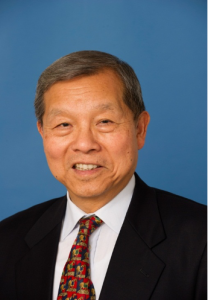Dr. Yukon Huang
U.S-China Economic Tension: From Trump to Biden
Zoom Webinar
Thursday, October 14, 2021 | 6:30 PM – 7:30 PM ET
Despite the range of policy differences between Presidents Trump and Biden, both administrations see China as a strategic threat and great-power rival. It explains why, after nine months in the White House, there has been no sign that Biden is preparing to quickly abandon the use of Trump’s signature tariffs. What are the underlying assumptions about China and its economic role driving Washington’s decisions and are they correct? How should the Biden administration approach U.S. trade policy toward China under the Biden administration? Join us at 6:30 PM ET on Thursday, October 14th in a special briefing, which is a part of our Deep Dives: China 2021 program, when Dr. Yukon Huang, Senior Fellow in the Carnegie Asia Program; Former World Bank Country Director for China, Russia, and the former Soviet Union Republics will discuss these questions.
COULDN’T ATTEND OUR EVENT? Don’t worry. You can watch it below
SPEAKERS:
Dr. Yukon Huang
 Yukon Huang is a senior fellow at the Carnegie Endowment in Washington D.C. He was formerly the World Bank’s Country Director for China. He is an advisor to the World Bank, ADB, AIIB and various governments and corporations. His research focuses on China’s economy and its regional and global impact. Dr. Huang has published widely on development issues in professional journals and the public media. He is a featured commentator on China and his articles are seen frequently in New York Times, Foreign Policy, Financial Times, Wall Street Journal, Foreign Affairs and South China Morning Post. His latest book Cracking the China Conundrum: Why Conventional Economic Wisdom Is Wrong was published by Oxford University Press. He has a PhD in economics from Princeton University and a BA from Yale University.
Yukon Huang is a senior fellow at the Carnegie Endowment in Washington D.C. He was formerly the World Bank’s Country Director for China. He is an advisor to the World Bank, ADB, AIIB and various governments and corporations. His research focuses on China’s economy and its regional and global impact. Dr. Huang has published widely on development issues in professional journals and the public media. He is a featured commentator on China and his articles are seen frequently in New York Times, Foreign Policy, Financial Times, Wall Street Journal, Foreign Affairs and South China Morning Post. His latest book Cracking the China Conundrum: Why Conventional Economic Wisdom Is Wrong was published by Oxford University Press. He has a PhD in economics from Princeton University and a BA from Yale University.
We are trying our best to keep our community informed about foreign affairs, and we would appreciate if you can support us to keep this virtual briefing series going. No amount is too small.

